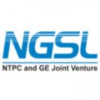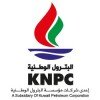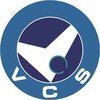Filter interviews by
Power Research & Development Consultants Interview Questions and Answers
18 Interview questions
MFC applications are still used due to legacy systems, familiarity, performance, and compatibility reasons.
Legacy systems: Many organizations have existing MFC applications that are costly to replace or upgrade.
Familiarity: Developers who are experienced with MFC may prefer to continue using it for new projects.
Performance: MFC applications can be optimized for performance in certain scenarios.
Compatibility: MFC a...
Faults in transmission lines can include short circuits, open circuits, and insulation breakdown.
Short circuits occur when two conductors come into contact, causing a sudden increase in current flow.
Open circuits happen when there is a break in the conductor, leading to a loss of continuity in the circuit.
Insulation breakdown occurs when the insulation material fails, resulting in leakage current or arcing.
Other f...
Swing equations are used to model the behavior of power systems during transient events.
Swing equations are a set of differential equations that describe the dynamics of power systems during transient events.
They are used to model the behavior of generators, transformers, and other components in the power system.
Swing equations take into account the mechanical and electrical properties of the system, as well as th...
There are various types of faults in power system.
Short circuit fault
Open circuit fault
Ground fault
Overvoltage fault
Undervoltage fault
Overcurrent fault
Underfrequency fault
Overfrequency fault
Different sequence of current in SLG, LLG, LLLG faults.
SLG fault has only one phase grounded, LLG fault has two phases grounded, LLLG fault has all three phases grounded
In SLG fault, the sequence of current is positive-negative-zero, in LLG fault it is zero-positive-negative, and in LLLG fault it is zero-zero-zero
These faults can cause damage to electrical equipment and must be quickly detected and resolved
Equal area criteria is a method to determine stability of power systems.
It is used to analyze transient stability of power systems.
It states that for a power system to be stable, the area of the power-angle curve during fault should be equal to the area of the power-angle curve after fault clearance.
It helps in determining the critical clearing angle and time required for fault clearance.
It is based on the assumpt...
Faults in power systems are common and can vary depending on the system's size and complexity.
The number of faults in power systems can vary depending on the size and complexity of the system.
Faults can be caused by a variety of factors, including equipment failure, weather events, and human error.
Power system engineers work to design and maintain systems that are resilient to faults and can quickly recover from t...
Power systems refer to the network of electrical components and devices that generate, transmit, and distribute electricity.
Power systems involve the generation of electricity from sources such as coal, natural gas, nuclear, wind, and solar power.
Electricity is then transmitted through high-voltage power lines to substations, where it is distributed to homes and businesses through lower-voltage lines.
Power systems...
Finding length of characters in string array without using inbuilt methods.
Iterate through each string in the array and count the number of characters in each string using a loop.
Add the count of characters in each string to get the total length of characters in the array.
Function to convert hexadecimal to binary in any programming language.
Create a function that takes a hexadecimal string as input.
Convert the hexadecimal string to an integer using the language's built-in function.
Convert the integer to binary using the language's built-in function.
Return the binary string.
Power Research & Development Consultants Interview Experiences
15 interviews found
I applied via Naukri.com and was interviewed in Apr 2024. There were 2 interview rounds.
(1 Question)
- Q1. Why do we still use MFC applications when latest desktop applications are available.
- Ans.
MFC applications are still used due to legacy systems, familiarity, performance, and compatibility reasons.
Legacy systems: Many organizations have existing MFC applications that are costly to replace or upgrade.
Familiarity: Developers who are experienced with MFC may prefer to continue using it for new projects.
Performance: MFC applications can be optimized for performance in certain scenarios.
Compatibility: MFC applic...
(1 Question)
- Q1. How are estimates provided for a new project/work?
I applied via Campus Placement and was interviewed in Oct 2023. There were 2 interview rounds.
I marked and got selected to next round
(2 Questions)
- Q1. Tell me about your self
- Q2. Various electrical components
- Ans.
Various electrical components include resistors, capacitors, diodes, transistors, and inductors.
Resistors: used to limit current flow
Capacitors: store and release electrical energy
Diodes: allow current to flow in one direction
Transistors: amplify or switch electronic signals
Inductors: store energy in a magnetic field
Interview Preparation Tips
Power systems studies and in that topics of electrical basics
(2 Questions)
- Q1. Online interview
- Q2. Face to face interview
(1 Question)
- Q1. Document verification and all

(1 Question)
- Q1. What are the faults in transmission line
- Ans.
Faults in transmission lines can include short circuits, open circuits, and insulation breakdown.
Short circuits occur when two conductors come into contact, causing a sudden increase in current flow.
Open circuits happen when there is a break in the conductor, leading to a loss of continuity in the circuit.
Insulation breakdown occurs when the insulation material fails, resulting in leakage current or arcing.
Other faults...

Power System related topic & Basic knowledge of Electrical Engineering
(2 Questions)
- Q1. Work Experience & other details
- Q2. Site experience , Project related
I appeared for an interview before Feb 2024.
(1 Question)
- Q1. In the first round, what topics did you discuss with the HR representative, specifically regarding your communication skills, educational background, and technical expertise?
(1 Question)
- Q1. In the second round, how did the interviewers assess my technical skills and project details?
I applied via Campus Placement

It was an online assessment of 1hr
(2 Questions)
- Q1. Different types of faults
- Ans.
Different types of faults in electrical engineering include short circuit, open circuit, ground fault, and overload.
Short circuit: occurs when two conductors come into contact with each other, causing a sudden increase in current flow.
Open circuit: occurs when there is a break in the circuit, preventing current flow.
Ground fault: occurs when a live conductor comes into contact with the ground, causing current to flow t...
- Q2. Power ayatem analysis
I applied via Naukri.com and was interviewed before Feb 2023. There were 2 interview rounds.
(1 Question)
- Q1. Basics, based on your resume, cases, common study observtation/recommendations
(1 Question)
- Q1. Expected CTC, y did u left the old job,
Interview Preparation Tips
- IEEE standards
- load flow
- short circuit
I applied via Company Website and was interviewed before Dec 2020. There were 3 interview rounds.
Interview Questionnaire
3 Questions
- Q1. Basics of Power system.
- Q2. Basics of Power System Analysis.
- Q3. Basics & type of Load Flow Analysis.
Interview Preparation Tips
I applied via Campus Placement and was interviewed before Sep 2020. There were 3 interview rounds.
Interview Questionnaire
10 Questions
- Q1. What is swing equations?
- Ans.
Swing equations are used to model the behavior of power systems during transient events.
Swing equations are a set of differential equations that describe the dynamics of power systems during transient events.
They are used to model the behavior of generators, transformers, and other components in the power system.
Swing equations take into account the mechanical and electrical properties of the system, as well as the pow...
- Q2. What is equal area criteria.
- Ans.
Equal area criteria is a method to determine stability of power systems.
It is used to analyze transient stability of power systems.
It states that for a power system to be stable, the area of the power-angle curve during fault should be equal to the area of the power-angle curve after fault clearance.
It helps in determining the critical clearing angle and time required for fault clearance.
It is based on the assumption t...
- Q3. What are the type of faults in power system.
- Ans.
There are various types of faults in power system.
Short circuit fault
Open circuit fault
Ground fault
Overvoltage fault
Undervoltage fault
Overcurrent fault
Underfrequency fault
Overfrequency fault
- Q4. Methods to solve load flow
- Ans.
Load flow can be solved using various methods.
Gauss-Seidel method
Newton-Raphson method
Fast decoupled method
DC load flow method
AC load flow method
Continuation power flow method
- Q5. Different sequence of current present in SLG, LLG, LLLG faults.
- Ans.
Different sequence of current in SLG, LLG, LLLG faults.
SLG fault has only one phase grounded, LLG fault has two phases grounded, LLLG fault has all three phases grounded
In SLG fault, the sequence of current is positive-negative-zero, in LLG fault it is zero-positive-negative, and in LLLG fault it is zero-zero-zero
These faults can cause damage to electrical equipment and must be quickly detected and resolved
- Q6. Motor EMF equations.
- Ans.
Motor EMF equations are mathematical equations that describe the relationship between the voltage generated by a motor and its speed and magnetic field.
EMF equations are used to calculate the voltage generated by a motor as it rotates.
The equations take into account the motor's speed, magnetic field strength, and number of turns in the coil.
The EMF equations are important for designing and optimizing motors for specifi...
- Q7. Simple network problems.
- Q8. Why do you want to join this organisation.
- Ans.
I am excited to join this organization because of its reputation for innovation and commitment to excellence.
I have researched the company and am impressed by its track record of developing cutting-edge technology.
I am eager to work with a team of talented engineers who share my passion for innovation.
I believe that this organization's commitment to excellence aligns with my own values and career goals.
I am excited abo...
- Q9. Detailed explanation of your favourite subjects.
- Ans.
My favorite subjects are power systems and control systems.
Power systems: I enjoy studying the generation, transmission, and distribution of electrical power. I find it fascinating how power is generated from various sources and then distributed to homes and businesses.
Control systems: I am interested in the design and analysis of control systems that are used to regulate and automate various processes. I find it satis...
- Q10. Ohms law and energy units, series parallel loads based question.
Interview Preparation Tips
Top trending discussions






Power Research & Development Consultants Interview FAQs
Tell us how to improve this page.
Power Research & Development Consultants Interviews By Designations
- Power Research & Development Consultants Engineer Interview Questions
- Power Research & Development Consultants Electrical Engineer Interview Questions
- Power Research & Development Consultants Technical Architect Interview Questions
- Power Research & Development Consultants Software Engineer Interview Questions
- Power Research & Development Consultants Project Engineer Interview Questions
- Power Research & Development Consultants Power System Studies Engineer Interview Questions
- Power Research & Development Consultants Associate Engineer Interview Questions
- Power Research & Development Consultants Engineering Assistant Interview Questions
- Show more
Interview Questions for Popular Designations
Overall Interview Experience Rating
based on 8 interview experiences
Difficulty level
Duration
Interview Questions from Similar Companies
Power Research & Development Consultants Reviews and Ratings
based on 76 reviews
Rating in categories
|
Power System Engineer
55
salaries
| ₹3 L/yr - ₹6 L/yr |
|
Software Engineer
31
salaries
| ₹2.5 L/yr - ₹8.5 L/yr |
|
Engineer
30
salaries
| ₹2.4 L/yr - ₹6 L/yr |
|
Software Developer
21
salaries
| ₹2.8 L/yr - ₹7.1 L/yr |
|
Electrical Engineer
20
salaries
| ₹3.2 L/yr - ₹6.4 L/yr |

Sterling Oil Exploration & Energy Production

NTPC GE Power Services

Arabian Industries

Kuwait National Petroleum Company
- Home >
- Interviews >
- Power Research & Development Consultants Interview Questions













